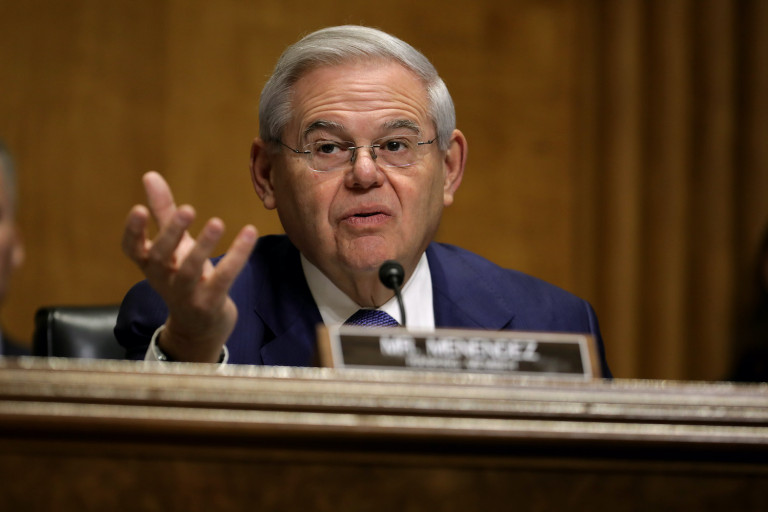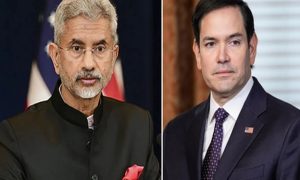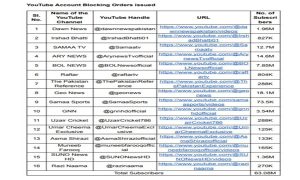In a rare bipartisan initiative in the polarised Congress, the top Democrat and Republican on the Senate Foreign Relations Committee together presented the Strategic Competition Act which aims to govern the fraught US relationship with Beijing.
“The United States government must be clear-eyed and sober about Beijing’s intentions and actions, and calibrate our policy and strategy accordingly,” said Senator Bob Menendez, the leader of the Senate Foreign Relations Committee.
If passed, the act would require the secretary of state to issue an annual list of all Chinese state-owned companies that have benefited from intellectual property theft that hurt any US company or sector.
It would also seek assessments on rape, forced abortion and other gender-based violence against Uighurs in addition to previously required reporting on incarceration and other mistreatment of the mostly Muslim people.
Rights experts say that more than one million Uighurs and other Turkic-speaking, mostly Muslim people have been rounded up in the western region of Xinjiang in a campaign the United States describes as genocide.
This comes in the backdrop of companies being targeted by the Chinese government over their recent comments on the treatment of Uighurs in Xinjiang. H&M products were taken off virtually all of China’s e-commerce websites, while there were widespread protests again Nike shoes in China.
Beijing argues that it is providing vocational training to reduce the allure of Islamic extremism. Beijing also denies US allegations of rampant theft of intellectual property.
The act would reaffirm strong US support of Taiwan, which has historically enjoyed wide bipartisan backing in Congress.
The legislation would require the United States to use “the same nomenclature and protocol” in dealing with Taiwan as with any foreign government, although it would maintain that Washington recognises only Beijing.
The United States must retain “credibility as a defender of the democratic values and free-market principles embodied by Taiwan’s people and government,” the act said.
Taiwan, a self-government democracy, is considered by Beijing a territory awaiting reunification, by force if necessary. More recently, tensions once again escalated between the two after Taiwan’s foreign minister announced that 10 Chinese Warplanes had flown into Taiwan’s air defence identification zone, along with an aircraft carrier being deployed for group exercises near Taiwan.
US politicians across party lines have increasingly pushed a tough line on China, one of the few areas on which President Joe Biden has voiced agreement with his predecessor Donald Trump.






















 WhatsApp us
WhatsApp us